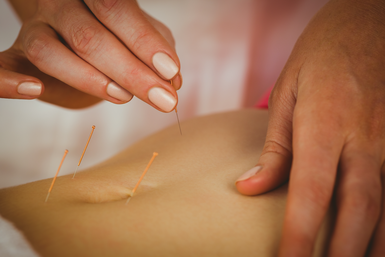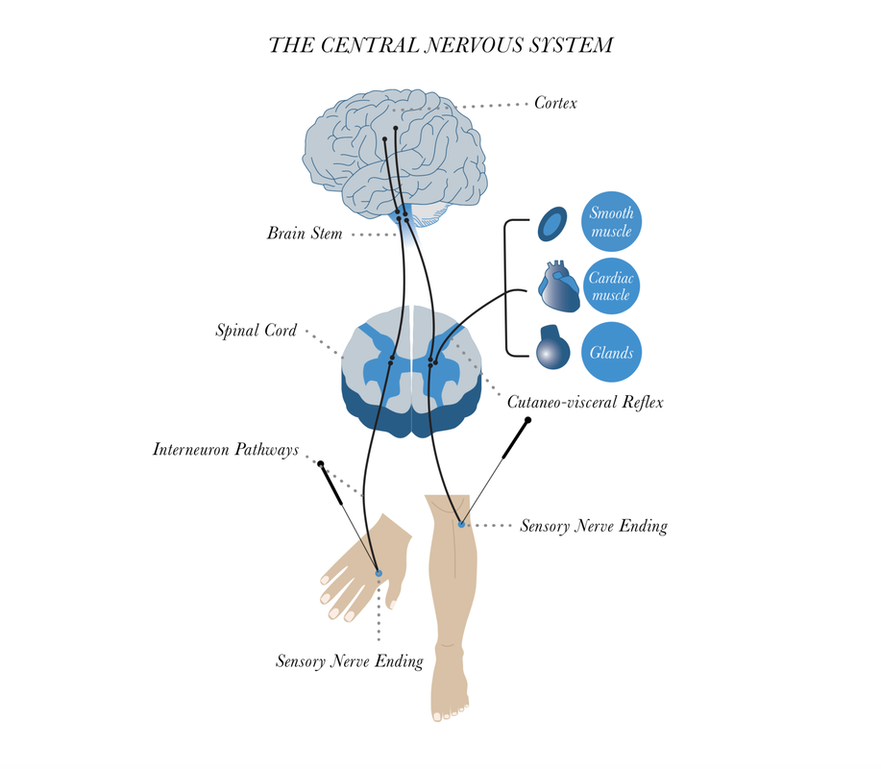
What is ACUPUNCTURE?
Acupuncture involves the insertion of extremely fine (and completely sterile) stainless-steel single-use needles into specific access points on the body to regulate the flow of energy, called ‘Qi’. Strong emotions, stress, environmental toxins, injury, poor nutrition or overnutrition can cause the Qi to become depleted or blocked, leading to pain or illness. Acupuncture needles help restore the Qi to a balanced flow, thereby triggering a natural healing response, as well as inducing a state of relaxation and a sense of well-being.
About two millennia ago, the Chinese made the significant discovery that needling can influence various functions of the body. The conceptual advances since the scientific revolution, particularly the relatively recent discoveries of the neurotransmitters and neuroplasticity, have lead to a new understanding of the mechanisms of acupuncture.
Acupuncture has been demonstrated to reduce activity in the parts of the brain associated with the perception of pain and increase activity in brain areas associated with improved self-regulation. A number of other biochemicals involved in pain reduction have been found to be released and regulated by acupuncture needle stimulation, including ATP, adenosine, GABA and substance P.
Many biochemical and signalling pathways have been identified as playing a direct role in how acupuncture achieves its clinical effects. But, perhaps the most central pathway that acupuncture uses, one that helps explain how it is effective in such a diverse array of clinical areas, is that acupuncture has been demonstrated to directly initiate a process called purinergic signalling, a primitive and ubiquitous system in the body using adenosine and ATP for signalling and regulation in all tissues and organ systems
In addition to biochemical actions, studies also demonstrate direct effects of acupuncture on the central nervous system. These include spinal reflex effects, where acupuncture stimulates muscle relaxation and changes in visceral organs. In the brain, acupuncture has been shown to change functional connectivity, decreasing activity in limbic structures associated with stress and illness while improving the regulation of the hypothalamus, pituitary, adrenal axis, the primary system that the body uses for regulating hormones and the physiological stress response.
Additionally, acupuncture modulates parasympathetic activity, the branch of the nervous system associated with rest, relaxation, digestion and tissue healing
Acupuncture can help with:
- Fertility, IVF & Pregnancy support
- Hormonal imbalance, Menopause
- Acute & Chronic body pain, Sciatica
- Stress, Anxiety, Depression
- Migraines, Sinusitis, Insomnia
- Digestion, IBS, Acid reflux
- Chronic Fatigue, Fibromyalgia
- Parkinson’s, MS, Cancer care
- Long COVID syndrome
Evidencebasedacupuncture.org From McDonald, John, and Stephen Janz. The Acupuncture Evidence Project (2017).
Is Acupuncture safe?
There are absolutely no harmful side effects from acupuncture treatment. All the needles we are using are disposable. They are used once and discarded in accordance with medical biohazard regulations and guidelines. The risk of bruising and skin irritation is much less than using a hypodermic needles.
There are absolutely no harmful side effects from acupuncture treatment. All the needles we are using are disposable. They are used once and discarded in accordance with medical biohazard regulations and guidelines. The risk of bruising and skin irritation is much less than using a hypodermic needles.
How many treatments will I need?
The number of treatments required varies depending on the nature of the illness and the patient's general state of health. It is highly recommended to follow the treatment plan and complete the course of therapy to restore health.
The number of treatments required varies depending on the nature of the illness and the patient's general state of health. It is highly recommended to follow the treatment plan and complete the course of therapy to restore health.
If you think that acupuncture could help you, please schedule a complimentary 15-minute chat
For more information and the latest research on what acupuncture can treat, please visit the British Acupuncture website.
For more information and the latest research on what acupuncture can treat, please visit the British Acupuncture website.
